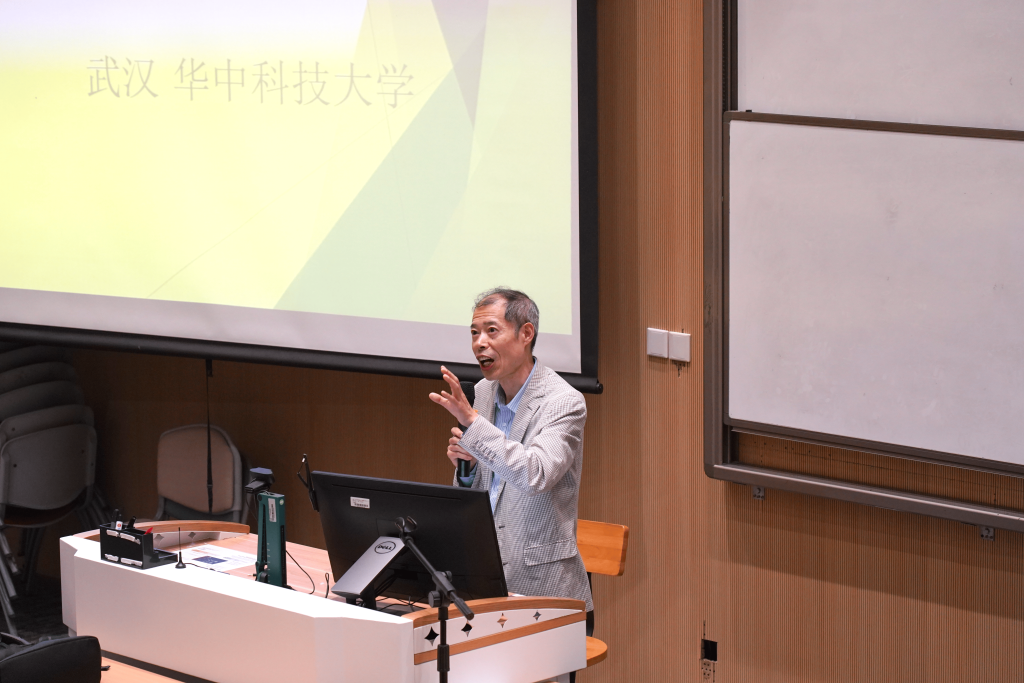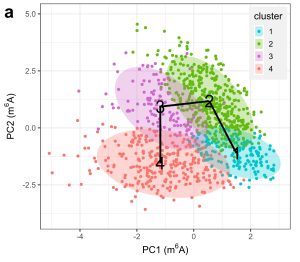09 May 2023
On 6 May, a lecture entitled " Music and Mathematics ——including topics on mental health " was held at the Xi'an Jiaotong-Liverpool University. Professor Xiaosong Yang from the Department of Mathematics of the Huazhong University of Technology showed students and teachers at XJTLU the beauty of music and the mathematics behind it. The lecture broadened students' knowledge and created a good platform for sharing between universities.

Professor Yang began the talk by showing a video of himself playing the Bayan accordion, introducing the high correlation between science and art. He said that science and art are similar in that they complement and improve each other. The commonality between science and art lies in the fact that they are both creative brain activities that seek order and harmony. Science requires reason and emotion to perceive the world; without passion, it is difficult to do science well, while art is also bounded, structured and logical. Although they see and feel the self and the world around them from different levels, they both seek profundity, universality and eternal meaning crystallised by wisdom and beauty.
"The curvature of the piano is not the artist's inspiration but a mathematical necessity. Inspiration is important, but it is primarily a mathematical necessity, and therefore, mathematical goodness can create deeper art." Professor Yang noted.
Professor Yang also spoke of the many philosophies of life that are also embedded in music and mathematics. No matter the instrument one plays, the player needs to have a dynamic plan. Most pieces are about 'reason', so it is essential not to take shortcuts in the first few steps but to consider the later stages of completion and prepare for them. It is also important to have a sense of overall optimality and to learn to accept multiple conclusions.
In addition, music plays a pivotal role in one's physical and mental health. On the one hand, music is the soul mate of the human being and can stimulate the body to secrete active substances that are beneficial to health and thus improve the nervous system. Meantime, the frequency and sound pressure of musical sound waves directly stimulate the cortical response to proper tension, thus influencing the person's mood and regulating their psychological state. On the other hand, music can help people with cognitive impairments to remember, such as people with Alzheimer's disease.
"Life is not about derivatives; it's about integrals, and definite integrals at that; music is the companion of the human soul; if you don't know anything about mathematics, you might as well enjoy the classical music method; if you don't know classical music, you can learn mathematics properly." Professor Yang said.

Zheng Yuqi, a sophomore in Applied Mathematics, found the lecture very beneficial to her. "I have been under much stress recently. Professor Yang's talk about music and mathematics content was very inspiring, while the talk also made me realise that mathematical thinking plays an important role in many problems."
Dr Li Cai from the School of Mathematics and Physics said, "Apart from the regular classes, I rarely have the opportunity to exchange ideas with students other than what I teach. This time, inviting Professor Yang to give a different kind of lecture can expose the students to different cultures or ideas, and I believe this kind of effect will gradually appear in the future."
By Jiaying Liu
Photo by Jiaying Liu
Translated, Edited by Qinru Liu
09 May 2023








